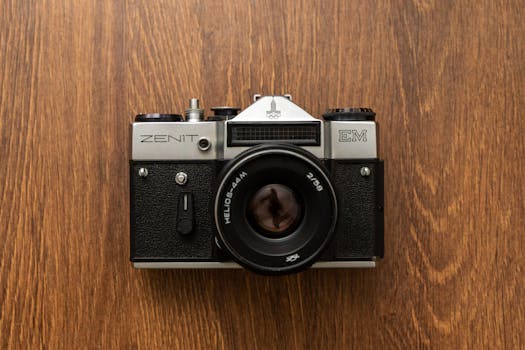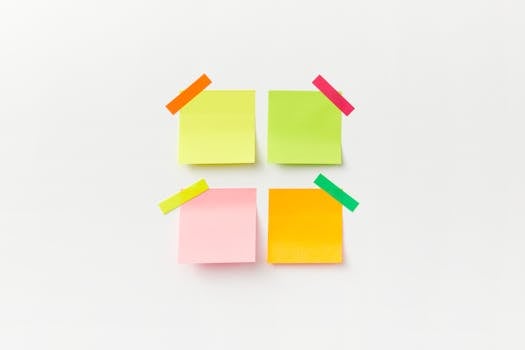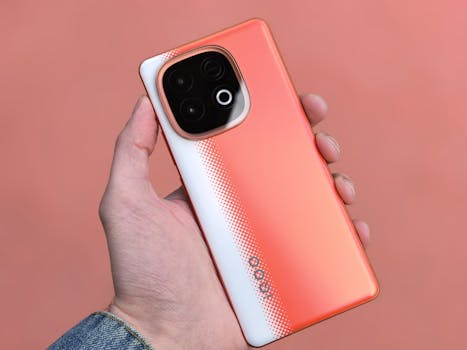Apps
Organize Your Apps: Increase Productivity and Well-Being!
Learn how to organize your phone's apps with tips that improve efficiency and provide a more enjoyable experience in your daily life.
Advertisement
Organizing your phone's apps is essential for maintaining efficiency in daily use. When your smartphone screen is cluttered with icons, it can be frustrating to find what you need quickly. Therefore, using effective organization methods can bring great relief.
Good organization not only improves your productivity but also provides a more enjoyable experience when using your device. A well-organized phone helps avoid distractions and makes it easier to find the most important apps.
There are several strategies you can apply to optimize your app layout. From using folders to choosing a custom home screen, each step will contribute to more fluid and efficient navigation.
Importance of Organizing Your Apps
Organizing apps on your phone is crucial for practical and efficient use. When apps are well-organized, users save time searching for what they really need.
Furthermore, an organized cell phone contributes to mental health. Having a clean visual environment can result in less stress and frustration. Therefore, the act of organizing has a positive impact on daily life.
It's worth noting that, as the number of apps increases, the need for organization becomes even more pressing. A cluttered smartphone can harm system performance and your priority usage.
Another important aspect is that many apps have similar functionalities. By grouping them together, you can avoid confusion and increase efficiency in your routine tasks.
If you don't have a defined strategy, you're likely to end up not using certain apps. So, organize your apps to get the most out of your device.
Strategies for Organization
One of the most effective strategies is using folders. Grouping apps by category helps them find them quickly and eliminates visual clutter on the home screen.
Another approach might be to prioritize apps. Put the ones you use most frequently on the home screen and move the rarely used ones to the inner pages.
Sorting apps into categories, such as work, leisure, social media, and utilities, can make navigation more intuitive. This clear organization makes daily life easier.
Additionally, using widgets can help you quickly access desired functions without having to open the entire app. This tip makes a difference.
Finally, don't forget to periodically review your app layout. Apps that are no longer used can be removed to keep your screen clean and organized.
Categories and Groupings Used
Defining categories for your apps is an important step. Typically, these are grouped into folders: Work, Entertainment, Communication, Health, and Games.
A Work folder can include apps like email, calendar, and productivity tools. This makes it easy to access during work hours.
On the other hand, the Entertainment folder can include music streaming and video services. This helps optimize leisure time.
When communicating, combine instant messaging apps and social media. This simplifies contact with friends and colleagues in one place.
The following table summarizes the main categories you can use to group your applications:
| Category | App Examples |
|---|---|
| Work | Email, Calendar, Notes |
| Entertainment | Netflix, Spotify, YouTube |
| Communication | WhatsApp, Facebook, Telegram |
| Health | Fitbit, MyFitnessPal, Meditation |
| Games | PUBG, Candy Crush, Among Us |
Using the Home Screen Efficiently
Customize your home screen to suit your needs. Placing your most-used apps at the bottom provides quick and easy access.
Also, try to use a non-distracting background. A simple background ensures the focus remains on the app icons, not the images.
Another tip is to adjust the icon size, if your system allows it. Smaller icons can provide more space for apps on the screen.
You can also utilize system features, such as creating a dedicated screen for specific folders. This makes accessing groups of apps even easier.
Finally, customization shouldn't stop there. Explore other customization options your system offers, such as themes and battery savers.
Using Widgets for Quick Access
Widgets are excellent tools for optimizing your phone's usability. They provide direct access to features without having to open the app.
You can include calendar, weather, and even music widgets. This allows you to always have information visible on your home screen.
Another advantage of widgets is that they save time. With just one tap, you can check appointments or the day's weather.
Additionally, don't forget to adjust the size and position of widgets so they don't clutter the screen. Always maintain a clean and organized layout.
This way, with well-configured widgets, the user experience improves considerably, making navigation on the cell phone easier.
Reviewing and Removing Useless Apps
Regularly reviewing your apps is essential. We often end up installing apps that we rarely use, consuming space and causing clutter.
Removing unnecessary apps helps keep your screen cleaner and makes it easier to find the ones you really need. This should be a regular practice.
Additionally, by uninstalling, you can discover which apps truly make a difference in your daily life. This improves the overall user experience.
Try evaluating your apps every month. Ask yourself if you actually use each app, or if any of them are outdated.
With this practice, you'll be surprised to see how a lighter, more organized cell phone can improve your productivity.
Conclusion
Keeping your phone apps organized is essential for practical and efficient use. By creating folders, categories, and eliminating unnecessary items, you can streamline your routine.
In addition to the tips mentioned, customizations and the use of widgets can add value to the experience. Each of these methods contributes to a more functional smartphone.
Regularly reviewing and organizing your apps also ensures you'll always have space and easy access. Make it a habit and simplify your digital life.
Finally, make the most of what technology has to offer. A well-organized cell phone isn't just about aesthetics, it's also about efficiency and well-being.





